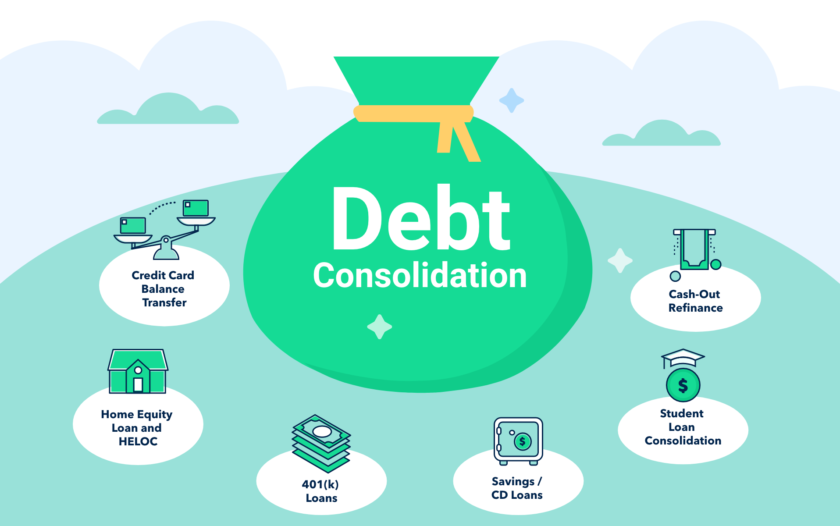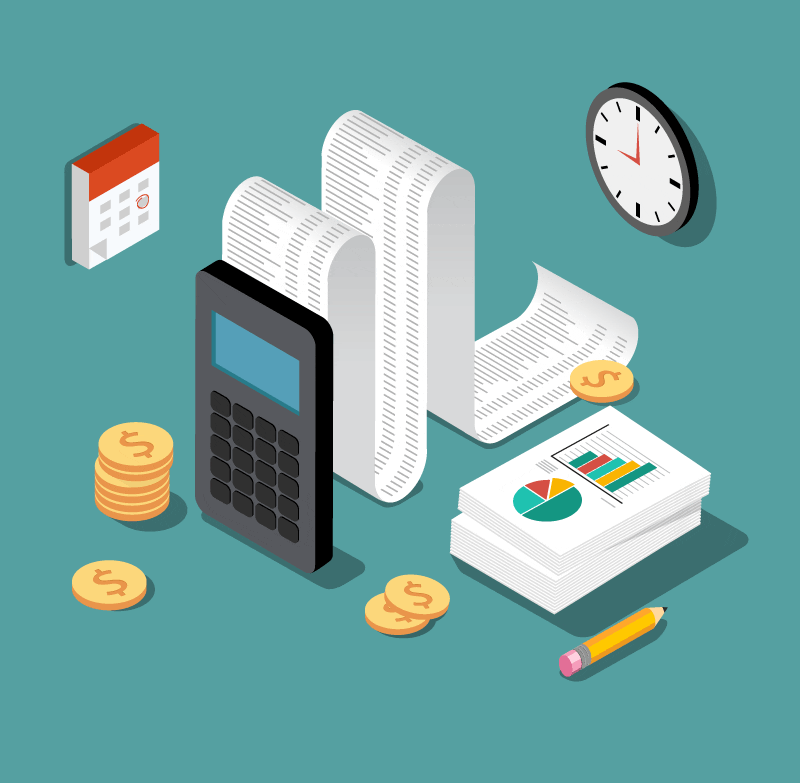Is a Debt Consolidation Loan Right for You? Find Out Here!
Debt can be overwhelming, especially when it piles up from multiple sources like credit cards, personal loans, or medical bills. That's where debt consolidation comes in, offering a way to simplify and potentially lower your financial obligations.
If you've ever wondered whether a debt consolidation loan is right for you, you're in the right place. This guide will explore what debt consolidation is, its benefits, risks, common options, and how to know when it’s a good idea.
Understanding Debt Consolidation Loans
At its core, debt consolidation involves taking out a new loan or credit card to pay off multiple existing debts. Instead of juggling several payments, you roll everything into one manageable monthly payment. This can help reduce stress and simplify your financial life. But the main draw? The possibility of securing a lower interest rate and lowering your monthly payments.

Imagine paying off your high-interest credit card balances with a single, lower-interest loan. By doing so, you not only make your debt easier to manage but may also save money in the long run. The mechanics are straightforward: you use the funds from your new loan or credit card to pay off the balances on your old ones. If you opt for a balance transfer credit card, you can directly transfer those balances onto the new card. Simple, right?
The Benefits of Debt Consolidation Loans
The allure of debt consolidation loans lies in the potential benefits, which can make a world of difference for those struggling to manage multiple debts.
- Simplified Billing: No more juggling multiple due dates, account numbers, and minimum payments. With debt consolidation, you streamline everything into one monthly payment, making it easier to stay organized and avoid missed payments.
- Lower Interest Rates: One of the biggest advantages of consolidating your debt is the possibility of securing a lower interest rate. This can save you a significant amount in interest costs over time, especially if you're consolidating high-interest credit card debt.
- Lower Monthly Payments: With a lower interest rate and a more manageable repayment plan, your monthly payments may decrease. This frees up extra cash for other expenses or savings.
- Freed-Up Credit: Once you've paid off your old balances, those credit lines become available again. While it's essential to use them wisely, having more available credit can positively impact your credit utilization ratio, which can boost your credit score over time.
- Potential Credit Score Boost: If you manage your consolidated debt responsibly by making timely payments and reducing your overall debt, your credit score can improve over time. Lower credit utilization and a solid payment history are key factors in achieving this.
The Risks of Debt Consolidation Loans

While the benefits of debt consolidation loans are appealing, it’s important to weigh the potential risks. Debt consolidation isn’t a magic fix, and understanding the downsides can help you make an informed decision.
-
Longer Repayment Term: One common pitfall is extending your repayment term. While lower monthly payments sound attractive, a longer term means you'll pay more interest over the life of the loan. Be sure to crunch the numbers to see if the long-term costs outweigh the short-term benefits.
-
Short-Term Hit to Credit Score: Applying for a new loan or credit card can cause a temporary dip in your credit score. This is due to the hard inquiry that occurs when lenders check your credit report. However, if you manage the new debt well, your credit score can recover and even improve over time.
-
Potential for Continued Debt: Consolidating your debt doesn’t eliminate it—it merely reorganizes it. Without addressing the root causes of your debt, you risk accumulating more debt on top of your consolidated loan. It’s essential to adopt better financial habits to avoid falling into this trap.
-
Collateral Risk: If you opt for a home equity loan or line of credit to consolidate your debt, you’re putting your home at risk. Failure to make payments could result in foreclosure, so be cautious when using your home as collateral.
Common Debt Consolidation Options
There are several avenues to explore when considering debt consolidation. Each option has its own set of pros and cons, so it’s important to find the one that best suits your financial situation.
-
Personal Loans: A popular choice, personal loans are typically unsecured, meaning they don’t require collateral. You can use the loan to pay off your existing debts and then repay the personal loan in fixed monthly installments. Interest rates on personal loans can vary based on your credit score and financial history.
-
Balance Transfer Credit Cards: If you have credit card debt, a balance transfer credit card can be a smart move. These cards often offer a 0% introductory APR for a limited period, allowing you to pay off your debt interest-free during that time. However, once the introductory period ends, the interest rate can jump significantly, so it's essential to pay off as much as possible before that happens.
-
Home Equity Loans/Lines of Credit (HELOCs): If you own a home, you can tap into your home’s equity to consolidate debt. Home equity loans provide a lump sum, while HELOCs offer a revolving line of credit. These options usually come with lower interest rates since they’re secured by your home. However, the risk is high—defaulting could lead to losing your home.
-
Consolidating Federal Student Loans: For those with multiple federal student loans, consolidation can simplify repayment by combining them into one loan with a single monthly payment. However, this doesn’t necessarily lower your interest rate, and you may lose some borrower benefits, such as income-driven repayment plans or loan forgiveness options.
When Is Debt Consolidation a Good Idea?

Debt consolidation can be a powerful tool, but it’s not a one-size-fits-all solution. Knowing when it’s a good idea can help you avoid potential pitfalls.
-
High-Interest Debt: If you’re carrying high-interest debt, such as credit card balances, consolidating that debt into a lower-interest loan can save you money and help you pay off the debt faster.
-
Multiple Payments Are Overwhelming: If managing multiple monthly payments is stressing you out, consolidating into a single payment can make your financial life more manageable. This is especially beneficial if you’re struggling to keep track of due dates and minimum payments.
-
Good Credit Score: A good credit score can help you qualify for favorable terms on a debt consolidation loan or balance transfer credit card. If your credit score has improved since you took on the debt, you may be able to secure a lower interest rate, making consolidation a smart move.
-
Commitment to Paying Off Debt: Debt consolidation only works if you’re committed to paying off the consolidated loan and avoiding new debt. If you’re ready to make a fresh financial start, consolidation can be a helpful strategy.
-
Stable Income: A stable income is crucial for managing your debt consolidation loan payments. If you’re confident in your ability to make regular payments, consolidation can provide the breathing room you need to get your finances back on track.
When Is Debt Consolidation Not a Good Idea?
While debt consolidation can be helpful, it’s not always the best solution. Here are some scenarios where it might not be the right choice:
-
Low-Interest Debt: If your current debt has low interest rates, consolidating might not save you money. In this case, focusing on paying down the debt as quickly as possible might be a better strategy.
-
Unstable Income: If your income is unstable or uncertain, taking on a new loan could add financial stress. In this situation, it might be better to explore other debt management options, such as negotiating with creditors or seeking credit counseling.
-
Bad Credit Score: If your credit score is low, you may not qualify for favorable terms on a consolidation loan. In this case, consolidating could end up costing you more in interest, making it harder to get out of debt.
-
Lack of Financial Discipline: Consolidating debt without addressing the underlying spending habits can lead to more debt. If you’re not ready to commit to a disciplined repayment plan, consolidation might not be the best option.
Final Thoughts
Debt consolidation loans can be a valuable tool for simplifying your financial life and reducing the burden of high-interest debt. By understanding the benefits, risks, and common options, you can make an informed decision that’s right for your situation. Remember, consolidation is just one part of the equation—adopting healthy financial habits and staying committed to your repayment plan are essential for long-term success.
If you find yourself overwhelmed by debt, take the time to explore your options. A debt consolidation loan could be the fresh start you need to regain control of your finances and move toward a brighter financial future.

